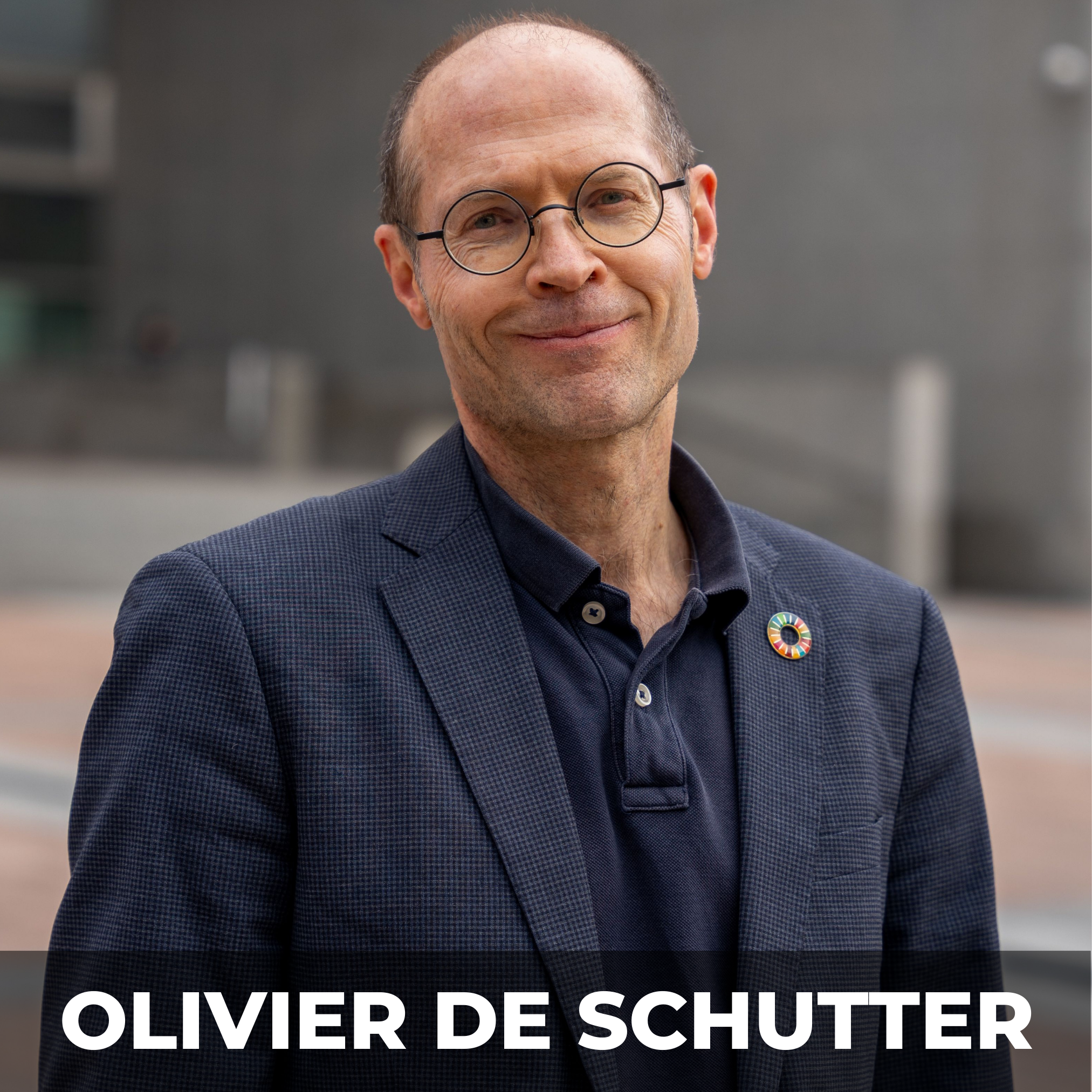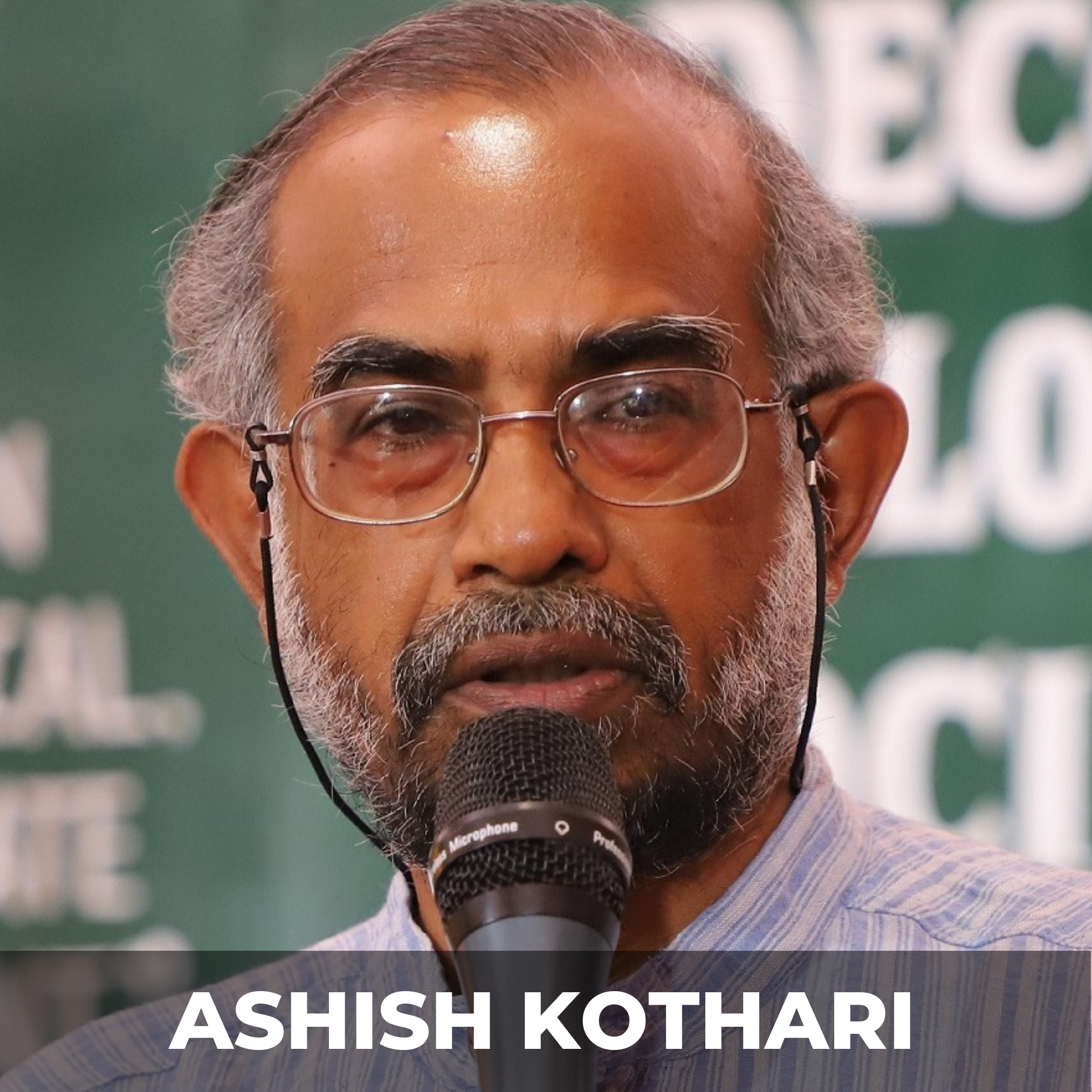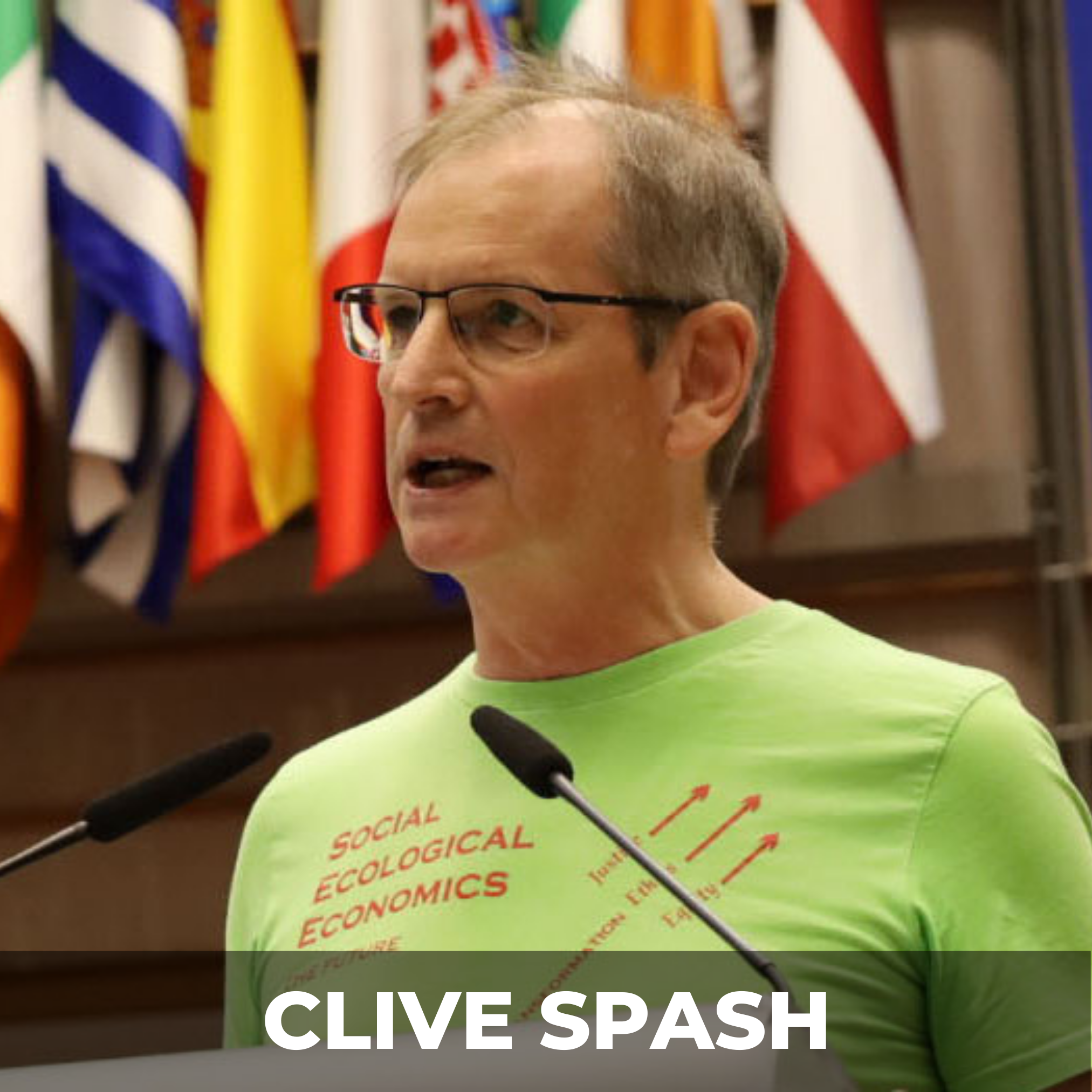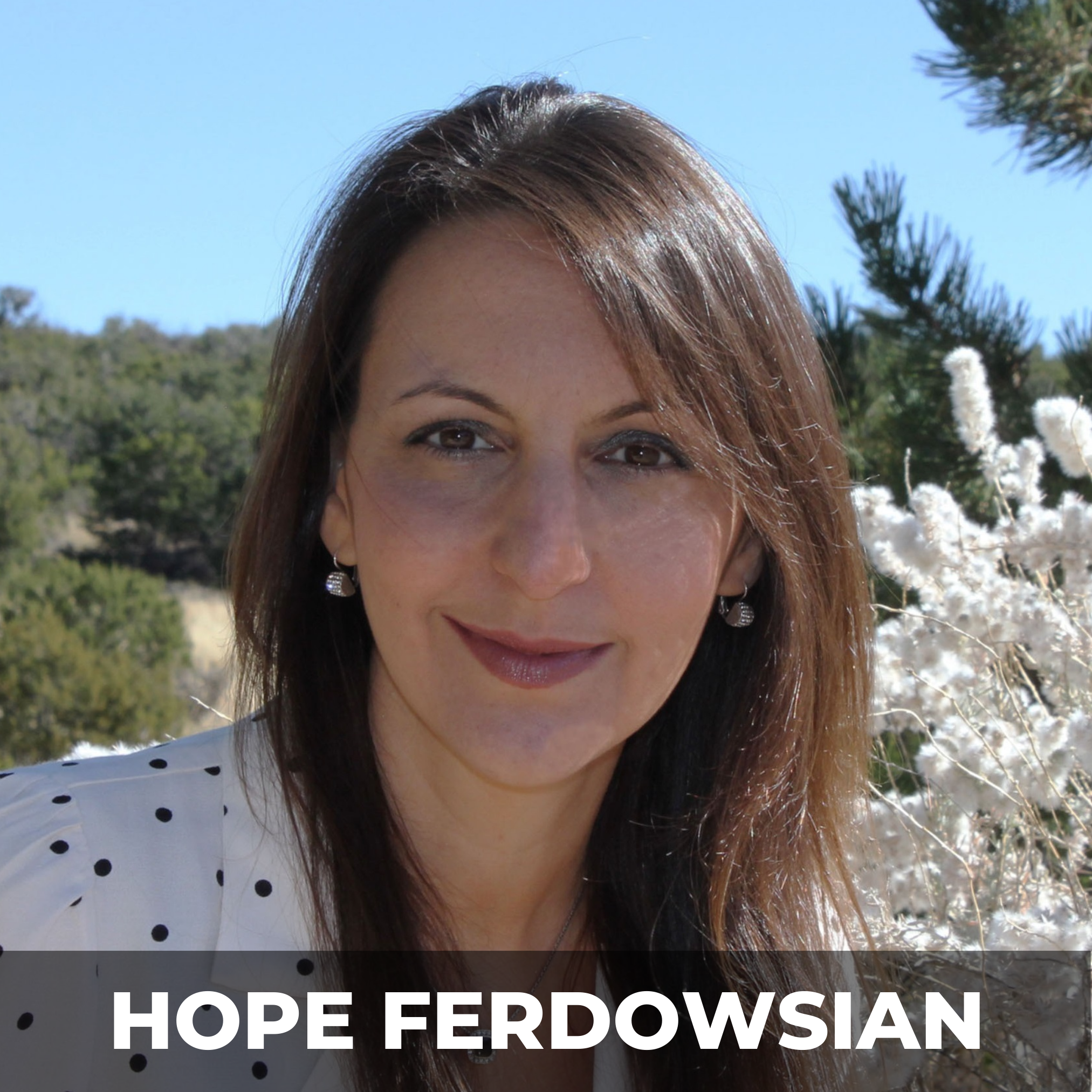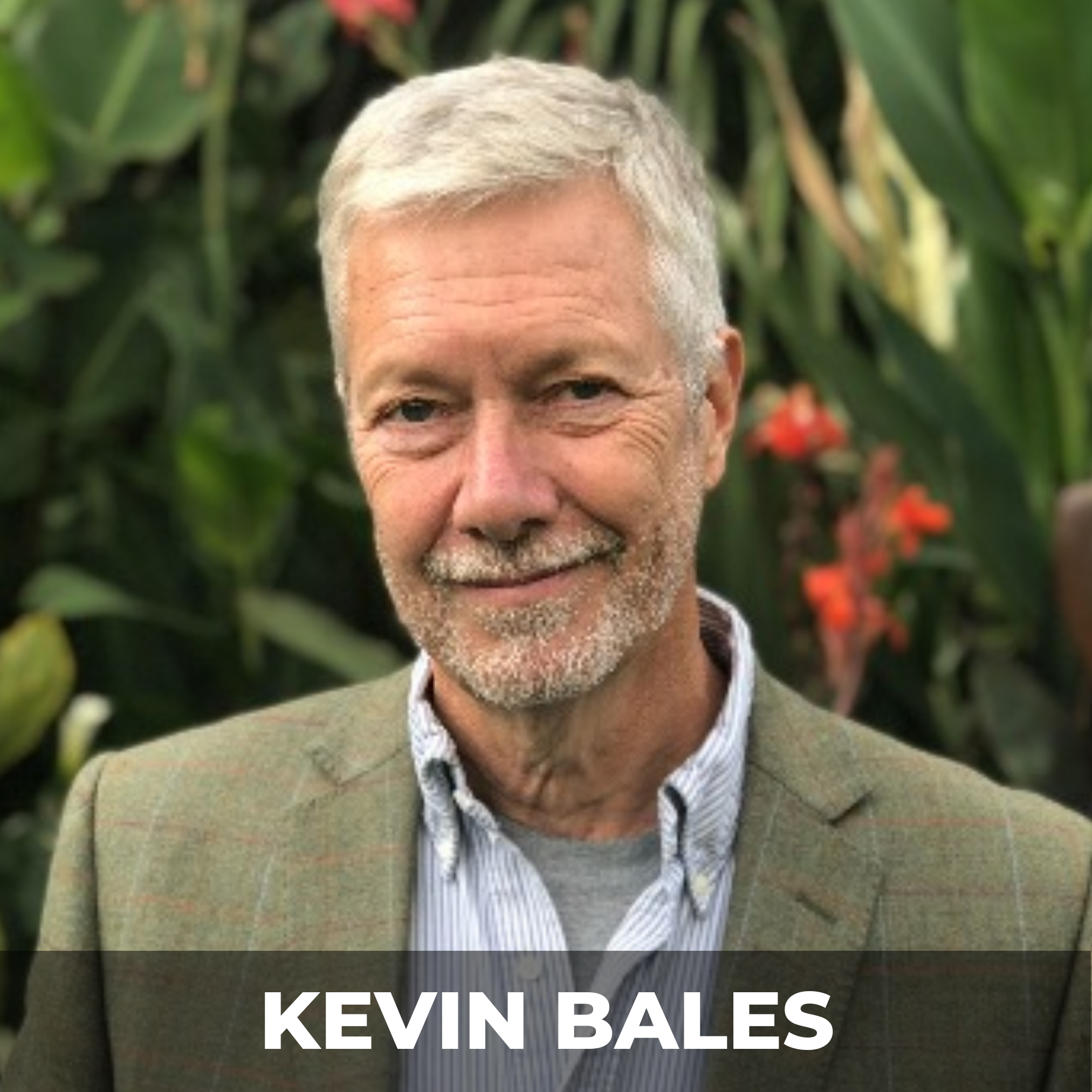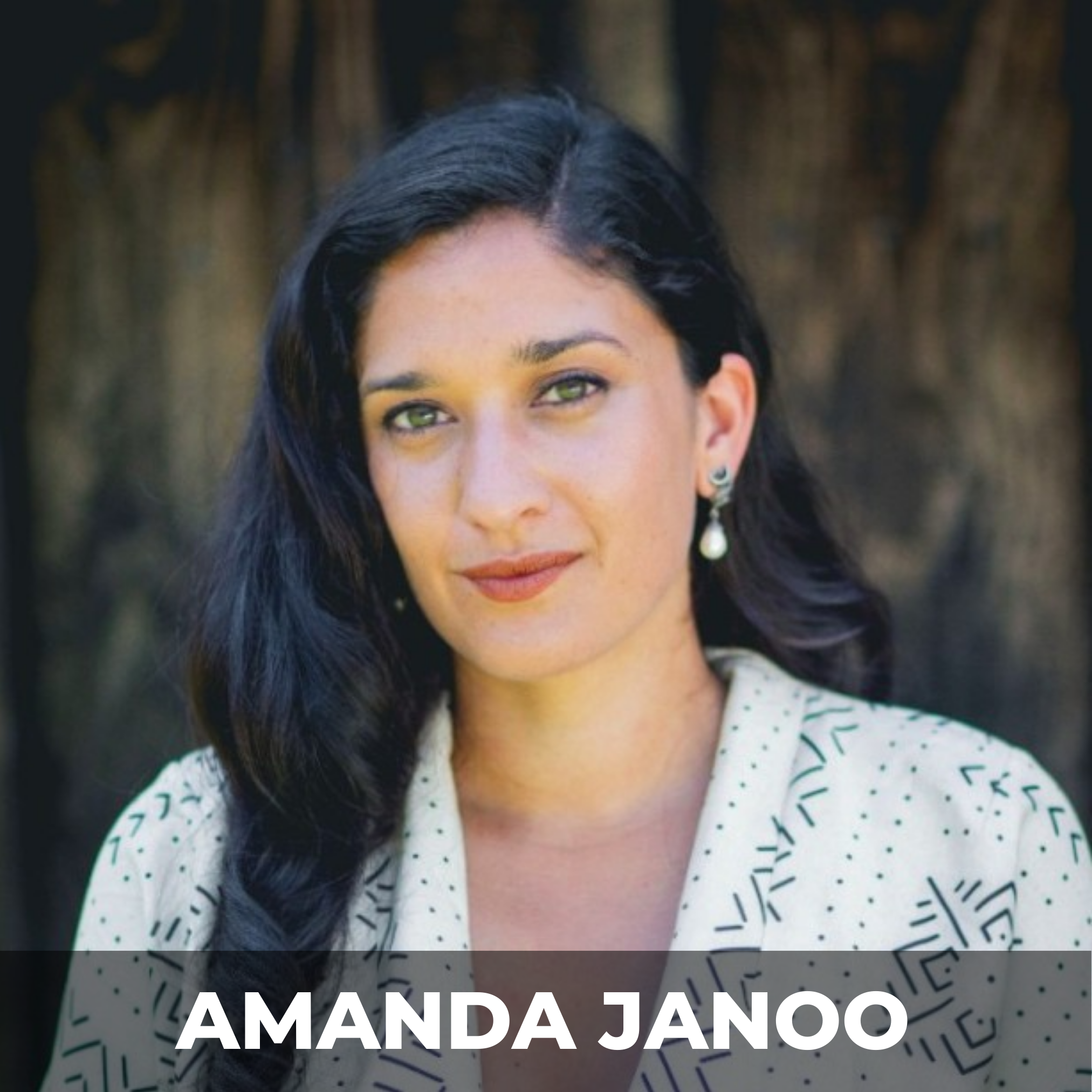Tackling Islamophobic Population Myths
Former Chief Election Commissioner of India, Dr. S.Y. Quraishi discusses his latest book The Population Myth: Islam, Politics, and Family Planning in India. Dr. Quraishi debunks the myth around exaggerated fears of Muslim numbers, born out of right-wing Islamophobic political propaganda, while also sharing that lack of socio-economic empowerment rather than religiosity fuels higher fertility rates. The Population Myth reveals how the right-wing spin to population data has given rise to myths about the 'Muslim rate of growth', often used to stoke majoritarian fears of a demographic skew. Dr. Quraishi uses facts to demolish these, and demonstrates how a planned population is in the interest of all communities.
MENTIONED IN THIS EPISODE:
-
Nandita Bajaj 0:00
‘Hum paanch, hamare pachees’, which translates to ‘us five and our 25’ is an old vicious phrase increasingly being promoted by Hindu nationalists in India to suggest that Muslim men have many wives and large families unlike their Hindu counterparts. Today's guest on the Overpopulation Podcast will help dislodge this and other anti-Muslim population myth prevalent in India and across the globe.
Welcome to the Overpopulation Podcast where we tirelessly make overshoot and overpopulation common knowledge. That's the first step in right-sizing the scale of our human footprint so that it is in balance with life on Earth, enabling all species to thrive. I'm Nandita Bajaj, co-host and executive director of Population Balance.
Alan Ware 0:59
And I’m Alan Ware, co-host of the podcast and researcher with Population Balance, an organization that educates about and offers solutions to address the impacts of human overpopulation and overconsumption on the planet people, people, and animals.
Nandita Bajaj 1:15
We are excited to welcome Dr. S.Y. Quraishi to our podcast today. And before we dive into that conversation, we have some listener feedback to share.
Alan Ware 1:25
Here's a letter from Gina, she says ‘Fantastic episode, so inspiring. Thank you for airing this segment. Dr. Guarin is such an effective and compassionate communicator. This was always a deep passion of mine as an OBGYN years ago. It was so frustrating to see women have to undergo surgeries for tubal ligation, with all the risks and expense that entailed while their male partners had the opportunity to step forward and have a 15 minute procedure that is nearly risk free by comparison. Yet so many men simply would not do it. Times are changing in many ways. Now is the time to make vasectomies as accessible as possible to men everywhere. And let's celebrate that opportunity and that choice.’ Thank you for that Gina. And here's one from Clif who mentions in his email that he got a vasectomy in the early 1970s. Clif says, ‘Your latest podcast is terrific,a masterful work of messaging about a significant topic that deserves wide recognition. Dr. Escar Guarin is a passionate, holistically-oriented doctor providing a much needed medical procedure - one that offers positive benefits for men, their partners and the planet. His enthusiasm for his work is inspiring as evidence in his philosophical goals, eloquent vocal expressions, personal stories and experiences. He is indeed a dynamic personality.’ Thanks for that Clif. That was in reference to our last podcast episode One Small Snip for Man, One Giant Leap for Human Kindness. And if you have feedback to share or guests recommendations, or a topic you'd really like us to discuss, feel free to write to us using the contact form on our site populationbalance.org or by emailing us at podcast at populationbalance.org. Dr. S.Y. Quraishi was the 17th Chief Election Commissioner of India. He figured in the Indian Express list of the 100 most powerful Indians of 2011 and 2012. He was appointed as the global ambassador of democracy along with the late Kofi Annan in October 2018 by International Institute of Democracy and Electoral Assistance at Stockholm. His book, An Undocumented Wonder: The Making the Great Indian Election got rave reviews internationally. His latest book, The Population Myth: Islam, Family Planning and Politics in India has already created a buzz. It is being translated into several languages.
Nandita Bajaj 3:51
And I'm so excited about our interview today with Dr. Quraishi who, being from India, not only shares my cultural heritage, but also whose work on healing the Hindu-Muslim divide has been a source of huge inspiration to me and countless others. Let's jump into today's interview with Dr. Quraishi on his latest book, The Population Myth: Islam, Family Planning, and Politics in India. Welcome to the studio, Dr. Quraishi, Alan and I are just so thrilled to have you here.
Dr. S. Y. Quraishi 04:23
Hello, Alan and hello, Nandita.
Nandita Bajaj 04:26
The topic of today's conversation, Dr. Quraishi, is your latest book, The Population Myth, and we are excited to uncover the book through the interview today. The Population Myth reveals how the right-wing spin to population data has given rise to myths about the Muslim rate of growth often used to stoke majoritarian fears of a demographic skew, and we love that you have done such a deep dive, helping to dismantle a lot of the myths that are out there. And we will cover many of those myths during the interview today. But we wanted to start by first asking you what motivated you to write the Population Myth.
Dr. S. Y. Quraishi 05:12
Thank you, Nandita. My entry into this subject was entirely accidental. In 1995, the then country director of UNFPA, who were Canadian, by the way, white Canadian, so he came to ask me to write a strategy paper for family planning among the Muslim because the Muslims were lagging behind in family planning. And I had some communication background, my PhD was in communication. So maybe because of that, he came to me and he said can I write a paper, a strategy paper. I was quite surprised because neither am I an Islamic scholar, nor had I worked in family welfare or health ministry, til then. Except, of course, when I met an IAS officer. If you know the working of the IAS, when I had my first posting as sub-divisional officer or sub-divisional magistrate, and later on a district magistrate in Gurgaon. So that was the time when there was national emergency and family planning program was being pushed really aggressively. So every district, every subdivision, was given some targets for sterilization.
Nandita Bajaj 06:25
Right.
Dr. S. Y. Quraishi 06:25
A very sad story in itself, but we were exposed to that. So that was my only experience of family planning. So I resisted. I tried to wriggle out of this offer, he was giving me a very good consultancy for 150,000 rupees for one month, where my salary was just five thousand rupees. So it was a very attractive offer. But an inner voice told me that this is a little sensitive subject and I should stay clear of it, but he would not take no for an answer. And then I said, "Okay, I'll do it without any fees," but he didn't accept that, and he said, "No, we always pay and we will pay you." So we agreed on a royal sum of one rupee. Now whether it is one rupee, or one million, it is a financial transaction. And therefore, we have to go through all the procedures. So it means I said, "You write to me a letter, officially, and then I'll take permission of government of India (where I was working then), and then we'll sign a contract." And we went through all that. Now, when I say it was an inner voice that told me not to charge, I was proved right. For five years down the line, in the year 2000, I was in London staying with my daughter in a hostel called London House. And I got a call from somebody who introduced himself Dr. Quraishi, same name as me. But he was the president of Muslim Doctors Association of UK. He said, "Mr. Quraishi, we have read your paper, and we have some issues to discuss with you." I thought the tone was a bit threatening, and I didn't want to get beaten up in London. So in order to get out of the situation, I said, "Sorry, have a flight tomorrow morning." So the guys landed at the airport, two of them. And the statement that they made is still rings by in my mind, "Look, Mr. Quraishi. Family Planning is a Western conspiracy against Islam. And they hire mercenaries like you through UN agencies to write that paper."
Nandita Bajaj 08:24
Wow.
Dr. S. Y. Quraishi 08:25
So you will notice that every word would have stuck on me because I was hired by a UN agency. And that's what makes me a mercenary. So since I had not taken that even one rupee til today, so I was able to, you know, bounce back on them. And I say, "Look, this even if the Western world is Islamophobic, for political reasons. This cannot be their conspiracy. It's not that they are producing ten children and asking Muslims to restrict the family. That's not the case." And of course, we argued, and nothing happened after that. But that is how the book began. I wrote a thirty-two, thirty-three page paper, which was very well received. Only by photocopying, it was circulated quite widely. I gave several lectures on the subject again, charging not even a rupee because I thought this is my national contribution to national unity. It is a very polarizing subject. I want to counter it by actually uniting the two communities being on the same end of the spectrum.
Alan Ware 09:25
It's interesting that in Prime Minister Modi's 2019 independent speech he mentioned what he called the reckless population explosion, and I remember my colleagues and I celebrating Modi's comments. But if we had dug deeper and understood better the cultural context, we would know that as you mentioned in your book, Modi and other members of his political party, the BJP has for years been blaming Muslims for population growth and stoking fear amongst Hindus against Muslims. And the idea that they'll eventually outnumber Hindus within India, and as you note in your book, based on population modeling forecast, Muslims will come nowhere close to outnumbering Hindus in the future. And yet the myth persists. And I'm wondering if you could give our listeners a bit of a brief historical background of the divisions between Hindus and Muslims in India?
Dr. S. Y. Quraishi 10:19
Yes, the first part of your question, you know, the reference by the Prime Minister in his Independence Day speech to population, and he linked it to patriotism, which means the people who have less children are patriotic, those who are more children are unpatriotic. Obviously, you have now realized, I don't want to use the word dubious, but that is the word which is coming to my mind. Now, what he said actually is even factually incorrect. If population is the index of patriotism, the people who have the best family planning in the country are the Sikhs with almost 80% of them adopting family planning. And that was the time last year, the whole of last year, when Sikh farmers were sitting in agitation against some farm law. They were all accused of being Khalistanis. Now, on one hand, because of their low birth rate, they are highly patriotic, and then you call them Khalistanis. That's an irony, that's a paradox. Now, secondly, if the number of children is the index of patriotism, yes, Muslims are the least patriotic because they have the lowest family planning and the highest TFR total fertility rate. But what people don't mention is the second highest TFR and second lowest population exceptive is of the Hindus. Muslim, 45% of Muslims practice family planning according to the last census which was 2011. And compared to Muslim 45%, Hindus at 54%. And as I mentioned Sikhs are at seventy-nine point something, 80%. So therefore, linking it with patriotism was a wrong idea. I have found that of course, the fact that Muslims have the least family planning practice is a given, and throughout the last seventy years which I have studied. But what are the factors? Not the religion, but socio-economic factors like literacy, particularly of girls, income, and access to services. Now, we have seen when the literacy rate improves, especially of girls, number of children goes down. Income goes up, number of children goes down. Services improve, and the number of children goes down. And in all these three factors, there are many more, but in all these three factor, Muslims are the most backward. So therefore what we should be addressing. Of course family planning is a good thing, that is my key thing. It's a very important thing and everybody should practice family planning, particularly the Muslims if they want to end their backwardness, but we need to address their literacy and their income. Have we heard the right-wing were talking about Muslim education? I haven't. Have they talked of economic empowerment? On the contrary, during the COVID period, we heard repeatedly that there should be economic boycott of the Muslim, even the vegetable vendor, he should be boycotted and vegetables should not be bought from him. Now, obviously, if he become poor, he will go and produce children and then that you won't like. So therefore, demanding that Muslim restrict their family planning is a bit hypocritical. So, if you want them to adopt family planning, you should create the conditions, and not just for Muslims, for Hindus as well. As I have argued in my book, that it is not a Hindu versus Muslim issue at all. Because if Muslims are the most backward, the second most backward are the Hindus. So they are on the same end of the spectrum. They're not opposite ends, they're on the same end. Because their literacy, their income level, their the service delivery also is poor, compared to the communities who have done better in family planning.
Alan Ware 14:10
And a history of that division, starting with the beginning of India, didn't Gandhi and earlier Prime Ministers tried to create greater unity, and definitely downplay those divisions.
Dr. S. Y. Quraishi 14:22
Yeah.
Alan Ware 14:22
And now it seems that Modi has heightened those divisions.
Dr. S. Y. Quraishi 14:26
Yes, yes, that unfortunately, that is the case. I wish they change their mind they change their stance. In any case, what I have shown through my book, that Muslims they started very negatively in 1951. First two, three decades the Muslim population was increasing much faster than the other community. As a result, there was distortion of demographic balance, which is what they are basing their entire hostility on. They say that the Muslims are multiplying so fast that they will become majority in the country and they will capture political power. And my book start with conceding - the very first sentence, I say "Yes, it is true that Muslims have the least family planning. It is true that the proportion of Muslim population increased from 9.8 to 14.2 in sixty years til 2011." I start with the admission of that, but then Muslims, they started adopting family planning much faster than the Hindus. So much so, that for the last thirty years, the gap has never been more than one child. You know, the general impression created in people's mind is that if a Hindu family has two children, Muslims have eight children or ten children. I must confess that even I had that kind of an impression when I did my paper twenty-five years ago. But then I found that actually the gap was just one child, one point one to be precise. And since Muslims are adopting family planning much faster, that gap has now come down to less than half a percent 0.48 to be precise, according to National Family Health Survey number four, so things are looking up. And because Muslim education is also improving, Muslim economy is also improving, the determining factor being these three socio-economic factors. They need to be addressed, and that therein lies the solution.
Nandita Bajaj 16:25
Yeah. You mentioned already a few of these myths. A couple of the ones you've mentioned is the Muslims produce too many children and are solely responsible for population explosion. One of the myths is that there's an organized conspiracy among Muslims to overtake the Hindu population to capture political power. We see those types of messages floating around and WhatsApp and in internet chains. There's a lot of fake news being shared. You also mentioned that the Muslim population growth is upsetting the demographic balance. That's another myth. The last one that you talk about also is that Muslims are use polygamy to increase population, and that Islam is against family planning. Can you elaborate both of those?
Dr. S. Y. Quraishi 17:18
Yes. In fact, Mr. Modi, when he was the Chief Minister of Gujarat in 2002, after the infamous Gujarat riots, he made this statement, "Ham Paanch Hamare Pachis," which is, "We five and our twenty-five," implying that me and my four wives make five and together we produce twenty-five children. Today's slogan is, "We four and our forty." That is something which has penetrated the minds of people, deep inside. In fact, not only the Hindus, even Muslims believe that polygamy is widespread among the Muslim, whereas you know, when I studied the issue, to my surprise, I found that polygamy in India is just not possible. In fact, there is a little bit of inconsistent position there. There was one study in 1975 conducted by government of India, mind you, it found that every community in India had some polygamy, and the tribals were about 16%, and Buddhists, Jains, and others, and Muslims were the least polygamous.
Nandita Bajaj 18:22
Wow.
Dr. S. Y. Quraishi 18:22
That itself was surprising. I have to believe that Islam is for polygamy and Muslim are polygamous, but we found that they were the least polygamous. Now, in order to see whether this was just one-off, freak study, I went back to the census of 1931, 1941, 1951. And I found exactly the same trend had persisted for those 30 years, which was reflected in 1975 study. So therefore, to say that Muslims are polygamous is wrong. There is a kind of a paradox among the Muslims also. Now that I know Muslims are not polygamous, why am I willing to fight for my rights for polygamy, and I'm willing to die for it when I don't even practice it? Now, secondly, in India, actually polygamy is just not possible. Why? Because the gender ratio is adverse. For one thousand men, the latest figure was two years ago, nine-hundred and twenty-two women. And this has been the trend for the last hundred and twenty years without exception. So now if there are only nine-twenty women available for one thousand men, which means eighty men will not even have one wife.
Nandita Bajaj 19:38
Right.
Dr. S. Y. Quraishi 19:38
Where will I get my second and third and fourth wife in that context?
Nandita Bajaj 19:42
Right.
Dr. S. Y. Quraishi 19:42
It is not possible. Nandita, since we are on the subject of polygamy, and yeah, you asked whether Islam is against it. I have never come across any Muslim cleric or mawlānā, saying that Muslims should produce many children to overtake the Hindu population. Never. Although I have heard them oppose and criticize family planning-
Nandita Bajaj 20:03
Sure.
Dr. S. Y. Quraishi 20:04
For a different reason, because they believe that Islam is against family planning - erroneously. And I've tried to dispel their myths told to them, that Islam is not against family planning. In fact, I have proved by quoting the verses from the Qur'an and Hadith, which is traditions of the Prophet, that Islam actually is the pioneer of the subject of family planning, you will be surprised. Fourteen-hundred years ago there was no population pressure anywhere in the world. And that is where Qur'an is talking of, you know, rights of children, rights of women, to good health, and good upbringing. And these concepts of family planning are being mentioned in the Qur'an and in Hadith. So if mullahs believe and the mawlānās believe that Islam is against family planning, they are wrong, and that those myths have to be dispelled.
Nandita Bajaj 20:50
Right.
Dr. S. Y. Quraishi 20:51
In fact, if I may mention, number one, there is no prohibition of family planning in the entire Qur'an. Whereas Qur'an has prohibited drinking, Qur'an has prohibited sex outside marriage, Qur'an has prohibited taking interest on loans. So and in fact, there is a verse in the Quran where Allah is saying that whatever I wanted you not to do I have explained to you in detail. Now, it cannot be anybody's case that God is forgetful, and he forgot to mention about family planning, he wanted to ban it, but he forgot about it.
Nandita Bajaj 21:22
Right.
Dr. S. Y. Quraishi 21:23
That cannot be anybody's case. Right? So and God himself is saying whatever I wanted to ban for you, I banned. Therefore, if he has kept quiet about the family planning and he is not banned it, that means family planning is valid in Islam.
Nandita Bajaj 21:36
Right.
Dr. S. Y. Quraishi 21:37
Now, there are only interpretations of various verses of the Qur'an, some are for, some are against. Now, for instance, there is one verse of the Qur'an. They used to, the pre-Islamic Arabs, they used to bury their daughters alive, because they thought having daughters is a curse, and they will not be able to bring them up. They don't have the money. They don't have the resources, so they used to bury them alive. In that context, that verse was revealed on the Prophet and in turn, advised people not to bury their daughters, it's a crime. Because if they are born, they should not fear, we will feed them. God use the word we for himself. So we will feed them. So many people think that God has taken guarantee for feeding therefore, family planning is not required.
Nandita Bajaj 22:24
Right.
Dr. S. Y. Quraishi 22:24
Because if children are born, they will all be fed.
Nandita Bajaj 22:27
Yeah.
Dr. S. Y. Quraishi 22:27
No, that's the wrong context.
Nandita Bajaj 22:29
Yes.
Dr. S. Y. Quraishi 22:29
In fact, one verse is addressing the young people, "Hey young people, when Allah gives you the means, you must marry because it will keep you looking at lust at other women." Now, one young man went to the Prophet protesting, he says, "Hey, look, I'm a poor man. I don't have the money. I don't have the resources, but I have my sexual needs. What should I do?" So Prophet repeated that verse, that til you have the means to marry and bring up a household, you should resort to fasting, because fasting suppresses sexual desire. Now together, Qur'an and then Hadith, and then finally, there was one more Hadith saying of the Prophet: one man who had many children went to the Prophet, and he said, "I've had enough and I don't want any more children. And I want to practice Azl - Al-'Azl was coitus intererruptus, or the withdrawal method in common language. "So I want to practice that method to restrict my family. I don't want any more children, but a Jew was saying that that is a minor infanticide, that is killing the sperm." So Prophet said, "No, no the Jew is wrong, that Jew is wrong, it is not infanticide, which means he go ahead and practice Al-'Azl. So together, these two verses, Hadith and words from the Qur'an, to me are a complete prescription for family planning.
Nandita Bajaj 23:54
Right.
Dr. S. Y. Quraishi 23:54
And there are many more. I mentioned all of them for and against and everything, and my conclusion out of that. One point which he had raised but I have not yet answered is the myth among the Muslims about right of polygamy. There is only one verse in the whole Qur'an, which refer to multiple wives. And this is how it goes, you can marry two, three, or four, right? So as soon as I read that, I go rushing and go looking for my second and third and fourth wife. But what follows is - provided you can treat them with absolute equality, which is not easy. Therefore, you're advised to marry only one.
Nandita Bajaj 24:31
Right.
Dr. S. Y. Quraishi 24:32
Now here, every mawlānā, every Islamic cleric mentioned that actually, polygamy in Islam is only permitted. It is not an injunction that you should have multiple wives. It's only a permission. And that to the limit of four. You can't marry five. The permission, which is conditional on treating women equally, which is very difficult. Now, my complaint against the Muslim clerics is that they have forgotten the first part of this verse in the Qur'an. These couple of verses in the Qur'an were in the context of the orphans and the widows. Where Allah is saying that treat the orphans, and the widows by implication. They're used to lots of widows because of tribal warfare, men would be killed and women with children will be left behind. So Allah is saying that treat the orphans with justice. Do not misappropriate their property. Do not substitute their good things with your bad things. And ideally, from among those orphans, you can marry two, three, or four. Therefore the first condition, according to me, marry those orphans and the widows provided you can treat them equally.
Nandita Bajaj 25:42
Right.
Dr. S. Y. Quraishi 25:43
So what is this concept of equally, that I marry a widow and send her to the kitchen to wash my utensils, whereas my first wife, the original wife, become the queen? That is the intention that absolutely equality is the second condition. So that is something which the Muslims need to understand, and keep away from polygamy.
Nandita Bajaj 26:01
Yeah, I just find it so interesting that the myth is being obviously perpetuated through Islamophobic narratives by nationalist Hindus, and by people from all around the world, obviously. But then there's also a misinterpretation of the Qur'an among the Muslim leaders, too. And that's perpetuating the myth even more. The other thing that I found very interesting, was what you said about God. That God will protect the children when they are born. And that people misinterpreted that to think that we can have as many children as we want, even if we are not able to take care of them, because God will take care of them. And in our work, we see a lot of what we call fatalism - is this belief that even if it puts the mother's life at risk, the child's life at risk, sometimes there's this belief that this is what God wants. And what you are saying is, that's a misinterpretation of the Qur'an because God doesn't want for you to bring children that you cannot care for, that you cannot feed and shelter. And it's really great that you've clarified that.
Dr. S. Y. Quraishi 27:22
Yeah, thank you. I'm glad you got it absolutely, accurately the way I meant it, and you articulated it even better than me.
Nandita Bajaj 27:29
Thank you.
Alan Ware 27:30
So as you note in the book, when young girls and women have more educational opportunities, they tend to choose smaller families. And you also note that Muslim women generally have lower educational attainment than women that are Hindu or have other religious affiliations. Why do you think those disparities exist in educational opportunities?
Dr. S. Y. Quraishi 27:51
Well, you know, it's a very good point. One is opportunity there that is the attitude. It is the great paradox that Islam, which emphasizes education from cradle to grave, should have its followers who are the least educated. In fact, the very first word of the Qur'an, which was revealed on the Prophet was iqra, "Read, oh Prophet." That's how it begins. And there are verses, then there are hadiths, traditions of the Prophet, where education of Muslim girls and boys is made compulsory, mandatory for them to acquire education. And despite that, not only the girl, but even the Muslim boy, is poor in education. We should address this. We should have been the most educated because that is the expectation of the Qur'an. Why is it we are the least educated? It's a matter of shame for us. But fortunately, the realization is now happening. Since 1992, after the demolition of the Babri Masjid, there was a bit of a reawakening among the Muslims, and they realized that instead of just complaining about victimhood, they need to focus on their education and focus on their economic betterment by their own efforts. So, the community and individual effort among the Muslims has been focused on improving the quality of education, particularly in the southern states. Which is why, in fact, interestingly twenty-five states in the country out of twenty-eight, Muslims have better birth rate than Hindus of Bihar. So why I'm comparing twenty-five state with one state? Because Bihar is kind of a model of backwardness. They're backward in literacy, in income, and health infrastructure. So even the Hindus there are backwards. But the fact that in twenty-five states Muslims are better in family planning than Hindus in Bihar. What does it prove? That religion is not against it. If religion was against family planning, no state would be better than Bihar. They will always be behind Bihar or UP, but no. And I believe that in Southern states the Muslims are better practicing Muslim than Muslims in my part of the country - the North India. So if they are good Muslims and they are practicing family planning, that's a good lesson there.
Nandita Bajaj 30:18
That's helpful. And I wonder how much of it is an urban-rural divide? Are Muslims more rural on general than Hindu?
Dr. S. Y. Quraishi 30:26
No, Muslims are more urban. But the urban-rural divide cuts across religion, that is for all communities. Yeah.
Alan Ware 30:35
Because in so many countries, you see that as they urbanize, they have smaller families, just because more children isn't economically advantageous as much in an urban setting.
Dr. S. Y. Quraishi 30:45
Yeah. Muslims are more in town than in villages, little more to that extent they have an advantage of urban development.
Nandita Bajaj 30:53
Yeah. And as you mentioned, you know, if it really were about religion, then why would we be seeing such a disparity between Bihar and some of the other states between Hindu fertility rate and the Muslim fertility rate? But you also mentioned in your book, that there are several Muslim countries like Iran, and Egypt, Indonesia, and Bangladesh, that have had very successful family planning efforts?
Dr. S. Y. Quraishi 31:20
Yes, before coming to those countries. Let me make one more point in continuation of the earlier point.
Nandita Bajaj 31:26
Sure.
Dr. S. Y. Quraishi 31:26
That I tried to prove that there is no Hindu rate of growth or a Muslim rate of growth. Now, I'll give you the range. For instance, for the Muslim in Tamilnadu, they are 1.74 TFR, and it goes up and up, and in Bihar it is 4.11. Now, which one of these would you call Muslim rate of growth 1.74 or 4.11? Similarly, among the Hindus 1.42 in Kerala, and it goes up to 3.29 in Bihar. Which one is the Hindu rate? Therefore, since every state has different socio-economic conditions, and the rate of growth is different, we cannot generalize.
Nandita Bajaj 32:04
Yes.
Dr. S. Y. Quraishi 32:04
But the common factor is that where literacy and income and services have improved, the family planning has been a success. The second point about the country. In fact, I've written a chapter on family planning among the Muslim countries, ten Muslim countries. Again, there are surprises there. The most conservative Muslim country in the world, Iran, had the best family planning in the world, not just in the Muslim world, but in the entire world. 80% of the people practiced family planning there. Now, if Islam was a deterrent, surely the clerics of Iran would not have allowed them to adopt it as a state policy.
Nandita Bajaj 32:45
Yeah.
Dr. S. Y. Quraishi 32:45
But as a state policy, Iran, Indonesia, Malaysia, and recently Bangladesh, which was carved out of Pakistan. Pakistan continued to have a high birth rate. But the Bangladeshi ulama, the scholars, adopted a very progressive approach, and taking a lesson from Indonesian model where the Imams of mosques became the best preachers of family planning. And in the Friday sermon, which is so important for the Muslim, Friday sermons in Indonesia and Bangladesh preach family planning. As a result, Bangladesh has achieved better figures than India. And they are all overwhelming Muslim majority. So that's a very important lesson, that there are no political compulsions there from the clerics or from the political party, which is where the lesson for us is - that we should not shy away from dealing with faith leaders. Faith leaders, whether you like it or not, are influential.
Nandita Bajaj 33:46
Absolutely.
Dr. S. Y. Quraishi 33:47
They're very powerful. So it is good to have them on your side. And we have to reach out to them. In fact, I volunteer that even if our faith leaders, our mawlānās, feel that Islam is against family planning, I have a complete resource book developed for them which will be carved out of my book. I volunteered to do it pro bono. Quoting verses from the Qur'an and from Hadith, what exactly Islam is saying that they should know that.
Nandita Bajaj 34:13
That's an incredible service. And for all of our listeners who have any contact with any Islamic leaders, we welcome you to reach out to us to grab this resource from Dr. Quraishi. And if there are ways in which, Dr. Quraishi, we can help spread this message beyond this podcast, we would love to do that. You're absolutely right that religious leaders have a lot of influence.
Dr. S. Y. Quraishi 34:15
And one simple thing which can be done is, we can send some of our religious leaders to Iran, Indonesia, Malaysia, and Bangladesh and conversely, we can invite religious leaders from those countries to come and address our religious leaders. So this exchange of knowledge and experience will be extremely beneficial and the cost is nominal.
Nandita Bajaj 35:01
Yes, I think that's an excellent suggestion. And to go further into what's happening currently in India, but not only in India, we have seen an ethnic replacement fear in right-wing groups in Europe, we are seeing that in the US, and in many countries around the world. But particularly in India, we are seeing Prime Minister Modi and the BJP party have helped stoke those fears and perpetuating them. What do you think is the motivation for this fear? And how have the facts become so unaligned from the perception?
Dr. S. Y. Quraishi 35:37
You know, this propaganda has been around for a long time, fifty, sixty years, maybe more, because it started with the two nation theory where Hindus believed that Hindus and Muslims are two nations and some sections of the Muslims believe that also, which is why a partition took place. Particularly after partition, many Hindus believe that the partition state is unfinished, says Muslim state was created, every Muslim should go to Pakistan and what are they doing in India? And this is a slogan which appeals to most Hindus.
Nandita Bajaj 36:11
Yes.
Dr. S. Y. Quraishi 36:12
Though they don't realize that when the election to choose between India Pakistan took place, just about three or four percent of voters voted, it was confined to limited people. And the people who voted against it were also overwhelming. The Muslim clerical organization called Jamiat Ulema-e-Hind, they oppose the partition tooth and nail. They say this is our birthplace. So therefore, the people who stayed back, they stayed back by choice, opting for India as the preferred home.
Nandita Bajaj 36:44
Sure.
Dr. S. Y. Quraishi 36:44
Which is not acceptable to some.
Nandita Bajaj 36:46
Yeah.
Dr. S. Y. Quraishi 36:47
Now Muslims are disturbing their demographic balance. That is water and life. It is true to some extent in the first three or four decades, about four percentage point increase in Muslim population happened from 9.8 to 14.2. And Hindus came down from 84 points to 79.8. Now, this reduction of 4.2 was distributed over all the religious communities, mostly the Muslims, granted that. But for the last thirty years, the gap has not been more than one child. And now it has come down to half a child. So the Muslims are actually catching up on family planning. Now, four percentage point increase in sixty years now, a 9% population becoming 51% to become majority will require six-hundred more years if nothing else changes in the same trend, which has continued for the last sixty years. If it continues, it will take six-hundred years. But the propaganda is, "Oh, the Muslims are coming tomorrow, day after," you know that is the kind of propaganda which is happening. Now, in fact, very interestingly, to claim this argument, I requested a great mathematician in Delhi, Professor Dinesh Singh, who was the Vice-Chancellor of Delhi University til three, four years ago. And I asked him to prepare a mathematical model for me. I said, "I'm giving you my seventy year data and tell me, at this rate, how soon will I capture power? I mean, my community."
Nandita Bajaj 38:21
Yes.
Dr. S. Y. Quraishi 38:23
Right, so he had given a graph and said, "Forget about it, brother, forget about it. Not for one thousand years."
Nandita Bajaj 38:31
Wow.
Dr. S. Y. Quraishi 38:31
In simpler terms, a statistic. In 1951, the gap between the Hindus and Muslims was thirty crores, that's three-hundred million, Alan - Nandita understands crores.
Nandita Bajaj 38:43
Right.
Dr. S. Y. Quraishi 38:44
For your benefit, three-hundred million. Now the gap has gone up to eight-hundred million. Now there are eight-hundred million more Hindus than they were in 1951, there were only three-hundred million. And that is how Muslims are overtaking Hindus. No, the absurdity of this claim comes out very loud and clear-
Nandita Bajaj 39:04
Yeah.
Dr. S. Y. Quraishi 39:05
Through these statistics and this mathematical model.
Nandita Bajaj 39:08
It's irrefutable of what you're bringing to the forefront. And a book like this was much needed. It came out at just the right time. Although you might say twenty-five years ago when you started doing the work, maybe that was the right time.
Dr. S. Y. Quraishi 39:21
Yes, I think that that was the right time.
Nandita Bajaj 39:24
Yes.
Dr. S. Y. Quraishi 39:24
And why it took me twenty-five years, I'm not so dull and so stupid. It just so happened that this was not my main subject. And secondly, when my friend said that your paper is good, and you should expand it into a book. When I started writing it, every time I came near the conclusion, the new NFHS data will come in.
Nandita Bajaj 39:44
Oh, yes.
Dr. S. Y. Quraishi 39:44
You know, every five years we have NFHS, so I'll have to go through it all over again to see whether my findings have been turned upside down.
Nandita Bajaj 39:52
Right.
Dr. S. Y. Quraishi 39:53
But fortunately, they were only getting reiterated. So now we have NFHS four, NFHS five is also around the corner. And thank God my book has come out before that, if I had waited for NFHS five, then another five years would have been added. That's why it took so long. But there is a time for everything, better late than never.
Nandita Bajaj 40:13
Yes.
Dr. S. Y. Quraishi 40:14
Now the challenge for me, you know, I'm a lone voice against the very, very organized propaganda machine, the biggest propaganda machine of the world. Which is where, Nandita, where people like you, your voice, you asked me the question how to take this message forward. It is for all of you to think.
Nandita Bajaj 40:33
Yes.
Dr. S. Y. Quraishi 40:33
In fact, you know, the basic spirit of the book, it may sound like anti-Hindu, but it is not. It is actually very pro-India. And in fact, if you open the first page, the dedication of my book is to the unity in diversity, our unique identity. I'm trying to bring the communities together, so that we progress together in harmony. In fact, the right-wing has been appealing to the Hindus. That is as a matter of your concern, as a population institute.
Nandita Bajaj 41:04
Yes.
Dr. S. Y. Quraishi 41:04
They've been appealing to Hindus to produce eight or ten children to compete with them.
Nandita Bajaj 41:09
Yeah.
Dr. S. Y. Quraishi 41:09
Fortunately, no Hindu has taken them seriously. The response to my book from the Hindus has been excellent.
Nandita Bajaj 41:16
Yes.
Dr. S. Y. Quraishi 41:17
I have often said that India is secular, because Hindus are secular. Basically thoughts of India and Hindu as secular, and one proof, as I mentioned to you, was the partition. When Pakistan was born, and in 1951, when we adopted the republican model, we could have easily chosen a Hindu Rashtra. Nobody would have stopped them, because a Muslim country would have been created. The only other part would have been legitimately a Hindu country.
Nandita Bajaj 41:45
Yes.
Dr. S. Y. Quraishi 41:46
But the constituent assembly with 83% Hindus, unanimously opted for a secular constitution.
Nandita Bajaj 41:55
Wow.
Dr. S. Y. Quraishi 41:56
So that shows basically, India is secular, Hindus are secular. Which is why the response to my book instead of hostility and abuse, it is extremely positive. And now point is how to take this message across.
Nandita Bajaj 42:08
Yes.
Dr. S. Y. Quraishi 42:09
And the original provocation you asked me, the first question, why did I think of writing this? When I mentioned the UNFPA country director asked me to write a strategy paper.
Nandita Bajaj 42:20
Yes.
Dr. S. Y. Quraishi 42:20
How to promote family planning among the Muslims. By the way, the last chapter of my book is an answer to his request. The chapter is propagating family planning among the Muslims, and I'm teaching government of India how to do it, they have failed. I'm teaching them how to do it.
Alan Ware 42:36
Yeah, I think it's great. Well, you definitely want to unify such a diverse country as India and unify it as a democracy. And the fact that you were Chief Election Commissioner of India in 2012, that's the most populous democracy on the planet, you were overseeing elections.
Dr. S. Y. Quraishi 42:54
Yes.
Alan Ware 42:55
That must have been an enormous scale and a challenging task administratively. Like you, we also believe that representative democracy is the best political system for advancing social justice. And what do you see as the current obstacles, as a past Election Commissioner, to achieving more just and equitable democracy in India?
Dr. S. Y. Quraishi 43:15
Oh, yeah, good question. But before that, Nandita, may ask you, what is the population of Canada?
Nandita Bajaj 43:21
Close to forty million now.
Dr. S. Y. Quraishi 43:23
Forty million. Okay. You know, Alan mentioned that this is not only the largest election in the world, it is the biggest management event of any kind in the world. Do you know twelve million people is our staff?
Nandita Bajaj 43:36
Wow!
Dr. S. Y. Quraishi 43:37
And they're all government servants - this is larger than the population of various countries!
Alan Ware 43:43
Gosh!
Dr. S. Y. Quraishi 43:43
And they are supposed to deliver zero error election year after year. And we know the skill and art of taking work out of them, totally neutral and free and fair, credible election. I wrote a book called An Undocumented Wonder: The Making of the Great Indian Election in 2014. The book is doing so well that its fifth edition came out last year, as I keep on updating it with the latest information. So it's a beautiful and unique exercise, managing twelve million people and about a billion voters, one million polling stations. How we organize it, it is mind boggling. At the same time, it has become so routine with us that a good election doesn't make any news any longer - a bad election does. We are almost on autopilot because of our experience. In fact, inspired by this and on the demand of our colleagues worldwide, I had set up in 2011, an institute called India International Institute of Democracy and Election Management, despite hostility and opposition of various quarters as happens to every new idea. I'm very happy to report to you, Nandita, that ninety-three countries of the world have received training from us in the last seven, eight years. And half of them, their entire commissioners coming in learning from us. So that is the leadership role which India has played in the election. At the same time, a good election is not necessarily good democracy. The Economist's democracy index has rated India repeatedly over the last twenty years as a flawed democracy. When I was doing research for my book, and when I came across this term, flawed democracy, I was initially very upset. And like every Indian, my first impulsive reaction was, this must be a Western conspiracy to show India down.
Nandita Bajaj 44:41
Right.
Dr. S. Y. Quraishi 45:08
So you know, they have created parameters in such a way that we look bad. But then I realized, actually, we were down in democracy index. Election, we were getting 9.8 out of 10 marks year after year.
Nandita Bajaj 45:54
Right.
Dr. S. Y. Quraishi 45:55
Now, the fact that many MPs with the criminal cases pending against them keep on getting elected, and the fact that women's participation is low, the fact that only 10% of the MPs and MLAs are women, the fact that three-hundred million people are illiterate. Now, these are the things which are bringing the country down.
Nandita Bajaj 46:14
Sure.
Dr. S. Y. Quraishi 46:15
And we need to address that on top priority.
Nandita Bajaj 46:17
It's just refreshing to be able to admit what's not going right, but also point to what are some of the determinants of the failing democracy. It's the lack of education, it's the lack of women's empowerment. It's the lack of opportunities being given to the right people. And it's a lot of political propaganda that is feeding into some of these things. And we find especially in the US and Canada, there's been a lot of alarmism around not enough children being born. And now there's lots of pressure being placed on people to have more children. Because the ultimate parameter that measures success in a lot of countries, or almost every country around the world is money, the economy. And it's a shame when that economy has become the guiding principle of planetary success when all of the other parameters are failing. And you know, you mentioned earlier with Iran being so good in their family planning policies, but now Iran has gone back. And now they're blocking family planning. They're boycotting people from accessing services, because they want to produce more children. Even if people don't want them, even if people don't have the resources to take care of them. It's just so the country can have more people. But that's not just happening in Iran. It's happening in countries around the world, irrespective of religion.
Dr. S. Y. Quraishi 47:50
Yes, quite right. When there is a decline in population, they get worried, and they need to raise that decline.
Alan Ware 47:56
So I've read that you organize jam sessions at home, and that you've even invented a special guitar and that was particularly interesting to me because I play guitar and I have jam sessions. I'm just wondering what kind of guitar is this that you've invented?
Dr. S. Y. Quraishi 48:11
I make five guitars - electric guitar.
Alan Ware 48:13
Wow.
Dr. S. Y. Quraishi 48:14
Although I love Spanish guitar. But Hawaiian guitar was easy to make because it doesn't have frets, it's only painted fret. So I made a Hawaiian guitar initially, because I couldn't afford to buy a guitar then, I was poor. Now that I can buy guitars, I cannot play. So those days I could play, but could not buy. Now, of course, I have Fender guitar. But these days I play the keyboard, because that's a one man band. And I still have a rock band with former National Security Adviser and Foreign Secretary of India, Shivshankar Menon, and he's our, he's our lead singer and rhythm guitarist. I play the keyboard and play the guitar. We are both fan of The Beatles. I'm a fan of The Shadows - Cliff Richard and the Shadows.
Nandita Bajaj 49:01
Oh yeah, so am I!
Alan Ware 49:02
I'm a big Beatle-maniac.
Dr. S. Y. Quraishi 49:03
And in fact, I'll send you a picture of mine with Hank Marvin. The best guitar in the world has produced is Hank Marvin, so I went to see their concert when fiftieth reunion in 2009. So I booked a ticket a year in advance, I went to London, I heard the show. Then I had arranged a special meeting with Hank Marvin, I have a lovely photograph with him, which is on my wall. But we have refused to grow out of the music of the sixties and seventies. We play and we love it. We enjoy it every moment.
Alan Ware 49:35
Classic stuff. Yeah, I hope I'm still doing it in a few years. I think I will.
Dr. S. Y. Quraishi 49:41
In fact, you know, people used to ask me the secret of my sanity. And my answer is two things, my two hobbies: one music, the other reading and writing. I've written several books and I keep writing articles regularly. That keeps me sane. I'm seventy-four but I feel much younger. What guitar do you play, Alan?
Alan Ware 50:02
Steel string acoustic and a Stratocaster, and I studied classical for a while. I played different kinds and different styles. But lately it's been more of a steel string acoustic and some rock and pop in a band.
Dr. S. Y. Quraishi 50:17
Whoa, very nice. Very, very nice. Actually, music has no retirement age. That is the beauty of it, right?
Nandita Bajaj 50:24
Yes.
Dr. S. Y. Quraishi 50:24
You play all your life. And those of our bureaucrat friends who did not have any hobby, so when they retired, suddenly, they're at a loss.
Nandita Bajaj 50:33
Yes.
Dr. S. Y. Quraishi 50:34
Many of them don't even survive. But if you have a hobby, which will keep you ticking, nothing like it, I love it.
Nandita Bajaj 50:41
Dr. Quraishi, it was such a delight to have you today with us. And thank you so much for a very enlightening conversation. We learned so much from your book, and even more from this conversation. And I know our listeners will appreciate the depth and the breadth of knowledge that you have shared with us and we will do our work in helping to dismantle a lot of these terrible myths. Thank you so much for being here with us.
Alan Ware 51:11
Wow, Dr. Quraishi, he's worked so hard throughout his entire life to help maintain a more cohesive, and democratic India, and as a Muslim, he's experienced at a more personal level, all the misunderstandings and discrimination that's often experienced by religious minorities in countries all over the world.
Nandita Bajaj 51:31
Yeah. And as we discussed during the interview, his book has come at a particularly important time in India's history. When, as you can see, the generally stable multi-ethnic, multi-religious fabric of the country has come under threat, especially with Mr. Modi's leadership, where the anti-Muslim sentiment has become blatantly more mainstream and public. So we really hope this book will continue to help dismantle the myths being promulgated by the anti-Muslim groups in India and across the globe.
Alan Ware 52:06
Well, that’s it for this edition of the Overpopulation Podcast. Visit populationbalance.org to learn more. And if you feel inspired by our work, please consider supporting us using the donate button.
Nandita Bajaj 52:17
Until next time, I’m Nandita Bajaj, thanking you for your interest in our work, and also for your efforts in sustaining our beautiful life-giving planet.



